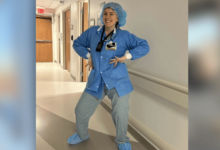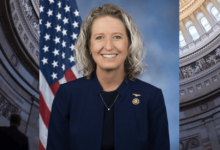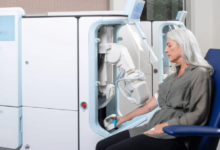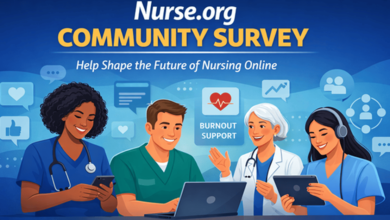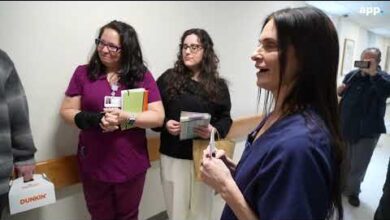Global nurse leaders call for scaling up of advanced practice
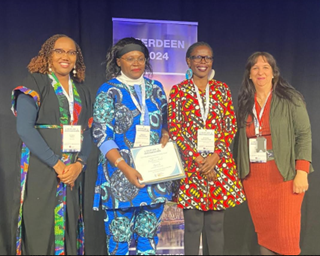
Advanced practice nurses need to be “fully embraced” to overcome challenges facing health systems across the world, global nursing leaders have told Nursing Times.
However, they also stressed the importance of countries having the right education and regulatory systems in place to support the safe scaling up of these roles.
Senior representatives from the International Council of Nurses (ICN) have spoken to Nursing Times about the current advanced practice landscape globally.
The issue is fresh in their minds following the recent bi-annual meeting of the ICN Nurse Practitioner/Advanced Practice Nurse Network (NP/APN Network).
The event, the 13th of its kind, was held in Aberdeen, Scotland on 9-12 September and saw more than 800 advanced nurses from 45 different countries gather to share learning and experiences and look to the future.
Dr Daniela Lehwaldt, chair of the NP/APN Network, said advanced nursing was at different stages of development globally – but was clearly growing.
She said since the creation of the network in 2000, there had been a “substantial increase” in the number APNs – the umbrella term used by the ICN to cover roles such as NPs as well as clinical nurse specialists – across the world.
The number of countries represented on the network has grown from 25 at the beginning to 141 now.
Feedback from nurses at the conference suggested that the issues APNs were facing globally were similar, explained Dr Lehwaldt.

Daniela Lehwaldt (far right) and Edna Tallam-Kimaiyo (far left) with the winners of the Low-Middle Income Country Award
She said these issues mostly related to “scope of practice, credentialing and regulation, title protection, working conditions, medical dominance and nursing resistance”.
“Too often we find ourselves on the menu and not at the table with high-level policymakers,” she added, noting that delegates at the conference were encouraged to share ideas for tackling these problems.
Looking forward, she said APNs needed to be utilised even more, “empowered” to work to their full potential and included in future healthcare planning.
Doing so could help achieve the United Nations’ sustainability development goals and the World Health Organization’s ambition for universal health coverage, she said.
“As we seek to meet the sustainable development goals and provide universal healthcare for all, advanced practice nurses must be fully embraced, and the roles and opportunities expanded to meet those goals,” she told Nursing Times.
“We know that APNs are a force for good and can have a positive impact on health outcomes.
“Through widespread utilisation of APNs, communities in need who are without healthcare providers can experience increased access to high-quality healthcare services.”
Her comments were echoed by ICN chief executive Howard Catton.
He said it was the ICN’s view that more focus on nurse-led models of care, particularly in the community, would be key to easing pressures on health systems globally – a point made in a new policy position statement released by his organisation at the NP/APN Network event.
“If you look at what’s happening around the world in terms of the pressures that health systems are under: increasing demand, ageing, non-communicable diseases, trying to recover from Covid, all of those things – we firmly believe that advanced practice coupled with a reorientation of our health systems to a primary healthcare approach are a major part of the solutions,” he told Nursing Times.

Howard Catton at the advanced nursing conference in Scotland
Mr Catton noted that the ICN was referring to a “philosophical” definition of primary healthcare in which the focus was shifted from medicine and treating disease, to protecting the health and wellbeing of people, preventing ill health and taking into account the social determinants of health such as housing and employment.
While recognising that this call to action was not new, he said the difference now was that “we’re at a breakdown or a breakthrough moment”.
“We see health systems everywhere under pressure, collapsing, struggling to meet increasing demand,” he said.
“And that’s why we now need not just to talk about having a primary healthcare approach, but to take the actions to reorientate our health systems to deliver it.”
To achieve this new model, advanced and community-based nursing would be “key”, he added.
“So, we want health systems around the world to really get behind advanced practice and nurse-led models of care,” said Mr Catton.
He said there were already many examples of nurses providing this type of care and delivering good outcomes for patients as well as cost savings.
“It’s not about asking politicians or policymakers to take a leap of faith that these roles might work, might be the answer,” he said.
“We can bring forward the evidence and the examples and the case studies of where they’re delivering for patients, but they’re also delivering for health systems in terms of the big challenges.”
His message to country leaders was to remove any barriers that are currently getting in the way of APNs, such as lack of resources or lack of regulation, education and career pathways.
He noted how the UK was one of the countries currently without regulation of advanced nurses – something that is soon due to change.
The Nursing and Midwifery Council has agreed to introduce specific regulation measures for this group and is currently developing “regulatory principles for advanced practice”.
Mr Catton said regulatory support for advanced practice was helpful for public protection because it provided assurances that individuals using this title had the required education and competencies.
When working in the right systems, the evidence showed patient outcomes from advanced nursing practice were “as good and sometimes better than traditional ways of delivering healthcare”, said Mr Catton.
“We have a research and an evidence base that clearly shows the effectiveness of these roles and the safety and effectiveness of these roles when people are working at the levels of competency which have been have been defined,” he said.
“The problem that we have is that there can be a lot of variability in terms of different standards that people work to.”
The next NP/APN Network conference will take place in September 2026 in Nashville, Tennessee.
